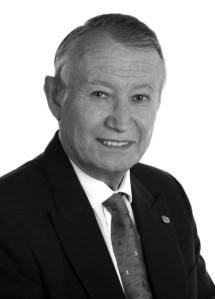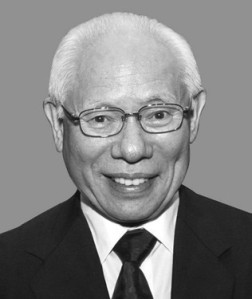jueves, 27 de septiembre de 2012
Rotary aportará US$75 millones para poner fin a la polio.
Hemos pedido a la adorable Yolanda, del Rotary Club de Ibiza, que nos explique su experiencia como voluntaria en la campaña de vacunación que lleva a cabo Rotary International en Delhi. Este es su interesante escrito:
Desde mi Ibiza nació la fuerza para ser parte de los voluntarios que con su participación en jornadas de apoyo colaboran en acciones sanitarias.
No debe desmayar el control y vacunación año a año para asegurar una sanidad total.
Fundación Melinda y Bill Gates junto con Rotary Internacional son los mayores donantes que aportan todos los fondos necesarios para llegar a cada lugar del mundo donde es necesaria la vacunación masiva.
La imágenes que nos acompañan nos hablan de una labor desarrollada dentro de las Jornadas Nacionales de Vacunación en India Este año 2012 se desarrollaron desde el 17 al 20 de Febrero. He participado en Delhi bajo la organización local de los rotarios indios que asumen jornadas adicionales varias veces a lo largo del año.
miércoles, 19 de septiembre de 2012
¡Descubre un Club Rotario con una de la mejores webs hoy!
Entrevistas, videos, fotografias, historia y un sin fin de información de actividades de Rotary International y del club que fomentan el altruismo, la fraternidad yla amistad.
¡Una web al servicio de todos y que recomendamos!
Entra aqui: http://www.rotarypalmajuniperoserra.org/

viernes, 14 de septiembre de 2012

Disfruta de excelentes webinars gratuitos de Rotary International en Español!
http://www.rotary.org/es/Members/Training/Webinars/Pages/Archives.aspx
Aproveite webinars excelentes Rotary International em Português!
http://www.rotary.org/pt/members/training/webinars/pages/archives.aspx
Acto de entrega de la Carta Constitutiva del Club Rotario de Toledo
 El día 29 de septiembre 2012 a las 20:15 horas tendrá lugar el acto de entrega de la Carta Constitutiva del Club Rotario de Toledo. Asistirán autoridades y representantes de las instituciones de la ciudad. Al finalizar el acto, tendrá lugar una cena y baile.
El día 29 de septiembre 2012 a las 20:15 horas tendrá lugar el acto de entrega de la Carta Constitutiva del Club Rotario de Toledo. Asistirán autoridades y representantes de las instituciones de la ciudad. Al finalizar el acto, tendrá lugar una cena y baile.Lugar de celebración: Hotel Hilton Buenavista Toledo. C/ de los Concilios de Toledo, 1.
Precio de la cena: 50,00 €. Ingresar en N.º CC 2013 1566 23 0200253846 (Antes del día 21 de septiembre de 2012).
Etiqueta, se ruega: Caballeros: smoking. Señoras: traje largo.
S.R.C.: Antes del viernes día 21 de septiembre Teléfs.: 925 25 14 02 y 699 17 76 39. E-mail: turevent@telefonica.net
jueves, 13 de septiembre de 2012
Thoughts of Rotary Leaders: Julio Sorjus
Trustee, The Rotary Foundation, 2012–2016
It was our founder, Paul Harris, who stated that "The promise of Rotary lays in its future, not in its past."
He added: "This is a changing world; we must be prepared to change with it. The story of Rotary will have to be written again and again."
When we gaze into the future, across the horizon, and explore the possibilities open right in front of us in two, five, or ten years, we are forced to admit that there is a mixed picture ahead.
My friends, the average age of Rotarians, 30 years ago, was 47. It has now become 61 years of age, and it unfortunately continues to climb. Evidently, our presence among the young is very limited. If we go on like this, our organisation will experience a serious contraction in a few years. To put it simply: unless we act and change today, we risk becoming a relic of the past.
As President Kalyan Banerjee has wisely stated, we need to curb the greying of Rotary, and then encourage its greening. We cannot afford to ignore that only 11 percent of today’s Rotarians are younger than 40, while 68 percent are over 50 and 39 percent are over 60.
How, then, can we make Rotary more attractive for the young?
How can we motivate and attract young people to join us – and then stay with us?
How will we make sure that Rotary retains its magic and charm in the eyes of the future generations? Specifically: How can we make sure that the young people of Brazil, India, Egypt, Taiwan, Japan, Australia and Spain continue to heed the call to service?
How will Rotary develop and send an inspiring, loud and clear message, a long term vision about where it needs to be heading?
If somehow we came to be in possession of many books, or medicines, or wheelchairs, or simply much cash: what would we do with those resources, if we didn’t have a plan, a vision, or a direction?
There is only one answer to the plight of modern organisations. Without a doubt, the only tool available to us to fully bring the organisation to a position where it can match its current challenges is Leadership.
We need modern, nimble leadership. Innovative and visionary conductors, open to the new realities. We are not talking here about the leadership of yesterday, which was based upon personal whims and superficial fashions.
Rotary needs committed leaders of high ethical standards, with the capacity to clearly articulate a passionately shared vision. We are seeking men and women who are able to communicate our ideas in simple, yet compelling ways. We need to identify the young men and women, with a fierce passion for excellence, who can move others to join in the struggle of shared aspirations of service to human beings in dire need.
More than ever, leadership in Rotary is everybody’s business, since, as leaders, we have a moral commitment to make sure the changes taking place are effected in a manner consistent with our core values, aspirations, priorities and dreams.
This is leadership requiring that every one of us should embrace truthfully and courageously, the vision of our dear organisation. We are here to serve, to help others and to give ourselves to others, day in and day out, thus empowering every man and woman in the organisation to implement and execute our goals. Hands-on service is the very essence of Rotary, and it amounts to being the required path of leadership in Rotary, so let us begin.
It is time for us to lead.
It is time to turn the page.
Thoughts of Rotary Leaders: Mark Daniel Maloney
Trustee, The Rotary Foundation 2004–2008
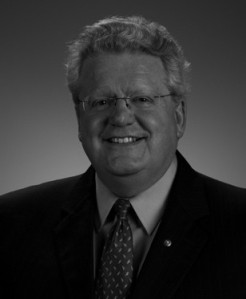 In 1985–86, I had the honour and privilege to serve as the President of the Rotary Club of Decatur, Alabama. During that Rotary year, the President of Rotary International, Dr. Ed Cadman, reminded all Rotarians, but particularly club Presidents, that their individual service was the key to successful Rotary service. His presidential theme was "You Are the Key!"
In 1985–86, I had the honour and privilege to serve as the President of the Rotary Club of Decatur, Alabama. During that Rotary year, the President of Rotary International, Dr. Ed Cadman, reminded all Rotarians, but particularly club Presidents, that their individual service was the key to successful Rotary service. His presidential theme was "You Are the Key!"
President Cadman emphasised that the role of the club President was key to the success of our organisation’s efforts. Although the typical organisational chart of Rotary leadership places the club President at the bottom of the leadership pyramid, the club Presidents’ significance to Rotary service means that they occupy the most important positions in the Rotary hierarchy.
As with all other aspects of Rotary service, the role of the club President is vital to successful membership development and retention efforts. How the club President addresses membership issues in the club will determine the outcome of the club’s membership efforts. I have seen time and time again, that mere exhortations from the club President asking Rotarians to invite prospective members fall mainly on deaf ears.
District membership efforts must be focused on motivating club Presidents to develop organised plans for membership development and retention. These plans must include the appointment of inspired Rotarians to organise and lead membership development activities. Whether these activities are team contests, incentives for proposers, committee-run recruitment campaigns, or other activities depend upon the culture of the club. The important point is that the club President must have a specific ‘plan of action’ with identified leaders for his or her year of service.
For successful membership development and retention, we must inspire our club Presidents and remind them, "You Are the Key!"
Thoughts of Rotary Leaders: Ian H.S. Riseley
Trustee, The Rotary Foundation, 2011–2015

All of us love our involvement in Rotary, so why wouldn’t every person leap at the opportunity to join a Rotary club? We know that there are a huge number of quality people who have never been asked to join, and it is the responsibility of us all to rectify that situation.
But when we do ask, what causes people who would make excellent Rotarians to decline the invitation to join? Could it be that most of us are reticent to emphasise the benefits of Rotary club membership to potential Rotarians?
I believe these benefits can be summarised under four principal headings:
1. Friendships: Very few people have all the friends they can handle, and Rotary is a great way to meet lots of outstanding people
2. Personal development: Rotary encourages, even requires, members to speak in public and become involved in management, administration and harmoniouslyworking with others.
3. Business development: Regularly meeting with business and community leaders can be of significant benefit to our vocation.
4. The opportunity to make a real difference: The greatest benefit! The combined efforts of over 1.2 million Rotarians results in huge positive outcomes that are outside the capacity of any individual to deliver.
So why do so many people leave Rotary after a relatively short period of membership? Probably because their actual Rotary experience didn’t meet their expectations. These expectations may have been unrealistic, but in many cases their Rotary club didn’t provide at least one of the four benefits outlined above. All clubs should be continuously alert to the needs of their members.
Thoughts of Rotary Leaders: Kenneth R. Boyd
Director, Rotary International 2011–2013.
 Everyone states: "We need more members," but for some reason, it seems to stop at that point Why?
Everyone states: "We need more members," but for some reason, it seems to stop at that point Why?A quick analysis is that we fail to train our leaders on "How to do this job?" We fail to recognise that everyone’s role is different and we like to put everyone in the same box. We also make it too complex.
Simply put, there are only three (3) things that must be done to have success:
1. We must focus.
2. Everyone has a role.
3. There must be a commitment.
How we go about achieving these three (3) ideas will vary from area to area to have success; however, the roles of "How to do this job" in the three (3) categories and sub-categories below them must be defined to the point that Rotarians, no matter which position they hold (DG, Club President, Membership Chair Member, etc.) will have direction that they can expand on to lead the way and succeed.
Zone 25–26 have been working on such a plan with job descriptions and directives for all three (3) of the above and their many sub-points for over a year. They have developed a plan named "IGNITE" that is available on their website at rotaryzones2526.org.
Thoughts of Rotary Leaders: John F. Germ
Trustee, The Rotary Foundation, 2008–2012
 Membership is the Life Blood of Rotary. Rotary has unique membership criteria in that the proposed individual must be sponsored by a current Rotarian and meet the classification requirements. While these are unique to Rotary, they do not impose any concerns about recruitment. Each member certainly knows other business and communities leaders who should be members of a Rotary club, but due to a fear of rejection may not propose that individual. Someone gave us the opportunity to become a Rotarian. I think we have an obligation to extend that favour to others. Take the opportunity to ask a colleague, associate or a friend to a meeting. Service is our calling and we need others to strengthen our ability to serve our community and our world. Reach out and touch someone and they will never forget you for giving them the gift of Rotary. We must Ask, Ask, Ask.
Membership is the Life Blood of Rotary. Rotary has unique membership criteria in that the proposed individual must be sponsored by a current Rotarian and meet the classification requirements. While these are unique to Rotary, they do not impose any concerns about recruitment. Each member certainly knows other business and communities leaders who should be members of a Rotary club, but due to a fear of rejection may not propose that individual. Someone gave us the opportunity to become a Rotarian. I think we have an obligation to extend that favour to others. Take the opportunity to ask a colleague, associate or a friend to a meeting. Service is our calling and we need others to strengthen our ability to serve our community and our world. Reach out and touch someone and they will never forget you for giving them the gift of Rotary. We must Ask, Ask, Ask.
While recruitment has not been the major concern, retention has been. We tend to lose too many members within the first two–three years of their joining a Rotary Club. This is due to a lack of an adequate orientation, mentoring and involvement. As the sponsor of a new member, we should insure that we encourage participation in club activities by our participation and inviting the new member to join with us in the activity. If we have relevant club meetings, individual involvement and great fellowship, we will retain those members and build a stronger club, a better community and a more peaceful world.
Thoughts of Rotary Leaders:John Hewko
General Secretary, Rotary International.
 In the early years of Rotary, the growth of our organisation was phenomenal. From one club with just four members, we grew in a matter of decades to an organisation of 1.2 million members in over 34,000 clubs. From the very beginning, Rotary has never had a problem with attracting new members. The problem, right from the start, often has been with keeping them. Of the first four members of the first Rotary club, two left. And even today, Rotary attracts about 1,20,000 new members each year—the same number it loses. If we could find a way to keep all of those new members in Rotary, our growth today would rival our growth in the days of Paul Harris—and our organisation would be capable of so much more.
In the early years of Rotary, the growth of our organisation was phenomenal. From one club with just four members, we grew in a matter of decades to an organisation of 1.2 million members in over 34,000 clubs. From the very beginning, Rotary has never had a problem with attracting new members. The problem, right from the start, often has been with keeping them. Of the first four members of the first Rotary club, two left. And even today, Rotary attracts about 1,20,000 new members each year—the same number it loses. If we could find a way to keep all of those new members in Rotary, our growth today would rival our growth in the days of Paul Harris—and our organisation would be capable of so much more.
Identifying the barriers to membership growth is the first step; overcoming them is the second. In order to proceed effectively, we must have information on which to act, and this means talking openly and honestly with our members. Why did each of them come to Rotary, and what were they seeking? Have they found what they came for?
Rotarians decide whether or not to remain in Rotary based on their own equation of value versus cost. What do they get out of Rotary membership, and what does it cost them, in terms of resources, time away from work and family and other responsibilities? Our goal must be ensuring that Rotary always gives its members more than it demands — that the satisfactions of Rotary service always outweigh its costs. If we can achieve this, then our future will be bright indeed.
Thoughts of Rotary Leaders: Shekhar Mehta
Director, Rotary International 2011–2013
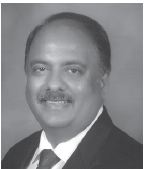 When Paul Harris started Rotary in 1905 little did he realise that one day the membership would grow upto 1.2 million across the world. Looking back he would be an extremely happy man. So are all the Rotarians about the tremendous growth that we achieved in our organisation.
When Paul Harris started Rotary in 1905 little did he realise that one day the membership would grow upto 1.2 million across the world. Looking back he would be an extremely happy man. So are all the Rotarians about the tremendous growth that we achieved in our organisation.
But this euphoria of growth was until 1996 when we touched 1.2 million mark. It has now been more than 16 years that we are hovering at 1.2 million Rotarians. So why are we not growing? What are the challenges faced by the Rotary world in its stagnated membership base?
The reasons are manifold and action needs to be taken for each of them today rather than later.
• The membership growth seems to have come to a saturation in many countries where the people in general no longer find Rotary very attractive. We need to revitalise our brand to attract more people and in fact more younger people.
The story of Rotary needs to be told in a better way. No other organsiations in the world can boast of the success that we are about to achieve by eradicating polio from the face of earth. In the history of mankind this will be done for the second time only. This one single story is good enough for membership to grow. But we have not been able to take benefit of this achievement. Our public relation needs to be far more aggressive.
• We are unable to tell the story of Rotary to the world also because we do not ourselves know the whole story. The Board of Directors has no clue of the total value of the work of Rotary’s projects around the globe. If we do not know our story well how do we expect the world to tell our story? And unless the story is told well how will people get attracted to Rotary?
• The emulation of success story — India has been an amazing story of membership growth. Agreed their retention has not been a story to write him about but had it not been for India and other such fast growth countries our membership would have gone down even below one million mark. The success story of such countries should be understood and used suitably in other countries where membership is falling.
14 Membership Matters
• With so many new entertainment avenues available to people at their finger tips through computers, smart phones, social media and the like, people quench their appetite for social interaction on the internet itself. They hardly miss the pleasure of meeting face to face at a place like Rotary meetings. Rotary probably needs to be more on the internet, more e-clubs and very soon e-districts too.
• While year after year there has been a focus on membership, I would say it has been more of lip service than an aggressive approach. We need to stretch targets for membership, ones that will whet the appetite for challenge in every Rotarian. The Calgary challenge or the Global Quest are events that should not be looked down upon. Failure of retention cannot be an excuse for not increasing rapidly. We should focus equally on retention.
• Aggressive focus on membership growth, recognitions and citations etc all should be geared towards membership growth. It is strange that while we have recognition pins for anyone who contributes to the Foundation, we have no recognition pins for the person who proposes a member. I am happy that the Board of Directors have recently corrected that. Let each Rotarian feel pride in bringing new person as Rotarian and let this pride be recognised and rewarded.
Lastly it is important that membership growth becomes everyone’s business. All of us who are members of Rotary are very happy that someone proposed us as a member of Rotary. Have we in turn made somebody happy by proposing him or her to the amazing world of Service Above Self? If not, today is the day. Membership growth is possible. All that it needs is our aggressive focus.
Thoughts of Rotary Leaders:Y.P. Das
Director, Rotary International 2011–2013

Membership development and retention has been the focus of the leadership of Rotary International for the past several years. It is essential since numbers translate into increased revenues from per capita contributions and more hands to carry on doing the good in this world.
Unfortunately our global figures for growth have remained stagnant over the past decade. But regional figures tell a different story. There are several regions that have been growing and others that have been declining in numbers. Statistic data shows that most of the growth is coming from Asia while North America is declining.
The earlier policy of one size fits all was obviously not able to address the declining or stagnant global membership issue. The most recent policy of the board to develop regional membership plans for development and growth will definitely yield results. Regions will need to develop plans within sub regions to address regional and sub-regional issues.
India leads in membership growth. Over the past five years membership has grown by leaps and bounds. In India we need to stress on the quality of members that are being inducted and lay greater emphasis on the orientation and induction process. Most of the membership decline is a result of the poor or nil orientation and lack of involvement for the newly inducted member.
Out of the 3,000 or more clubs in India, over 600 have a membership of below 20 and the percentage of female members is only 6 percent as compared to the global figure of 15 percent.
In summarising I would say regionalisation is the answer in addressing the issue of membership development as well as ensuring strong and healthy clubs.
Thoughts of Rotary Leaders: Kalyan Banerjee
President, Rotary International 2011–12
Rotary is like a classroom. Only those who are willing learners will move up. Membership in Rotary helps you to accept yourself, boost your confidence and change your life in a short time.
We can promote membership by telling people that they can see a few things, or many things, that can change their life. They might have tried various other methods to find a meaning to life. Rotary gives a readymade formula.
When no other way of reaching within worked, Rotary helps a person to effortlessly connect within themselves and find a new dimension of life. This is our unique selling point.
Membership in Rotary has worked wonders for thousands. It’s methods for a successful life are proven for the past one hundred years. It will work now for any adult willing to be an useful volunteer for uplifting the people who need help the most.
Rotary has helped people to accept the truth about themselves. Membership in Rotary changes life by helping the individual to concentrate on becoming who he or she really wants to be.
Thoughts of Rotary Leaders: Wilfrid J. Wilkinson
President, Rotary International, 2007–2008

When a man or woman joins a Rotary Club they are given many privileges and opportunities to serve both within their own club, their community, their country or worldwide. However none of these opportunities, in my opinion, is as great as the opportunities to propose another person for membership in Rotary. Perhaps it is a business colleague, a business competitor, a person that provides you with a service like your doctor, dentist, lawyer, banker and the list can go on for many paragraphs but the important thing is that they are qualified and will make good members.
However, I think we often look at our opportunities to share Rotary Membership too locally. Perhaps those new younger members, that Rotary needs right now, can be found away from our own community. Perhaps they are brothers, sister, sons or daughters living in another community or state. Perhaps they work in another branch of our company or are persons who graduated from school or university with us and now deserve the gift that we can give them. "Membership in the world’s most prestigious Service Club"
However proposing someone for membership is only half of the gift that we have to give away. We know from our records that Rotary inducts a lot of new members each year but also looses a lot for many reasons. Some of those reasons are easy to understand. An organisation can’t be over a hundred years old without losing a substantial number of members from sickness, old age, or other very understandable reasons. These are things that a Rotary Club can do little about except to insure that it has a vigorous and effective membership development plan in place.
Rotary’s, research finds that we lose members for other reasons and that is why every successful club must have a good system in place to ensure that every new member is properly inducted and made feel welcome. Every club needs to have a programme to mentor and inform its new members. They must be given special attention when they are inducted, informed about the club and Rotary International. Given a committee assignment, introduced to each and every member and asked frequently if they are enjoying the hours that they are now devoting to "Service Above Self." clubs with such plans, grow and flourish, those that don’t, wither away. I hope that your club grows, the world needs it.
Thoughts of Rotary Leaders: Sushil Gupta
Director, Rotary International 2003–2005
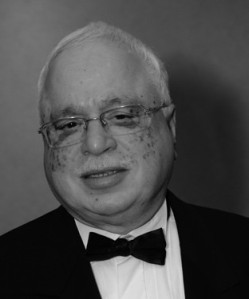 I am proud to say that I have now been a Rotarian for over 35 years. During this very fascinating journey, I have made many new friends who have enriched my own life. That would not have been possible without me being a member of this vast fraternity – Rotary. An increase in Membership in clubs gives us greater opportunity for fellowship, networking, mutual assistance and thus all round development in our own personalities by having inducted new members from diverse fields. We meet newer people every day and learn from them.
I am proud to say that I have now been a Rotarian for over 35 years. During this very fascinating journey, I have made many new friends who have enriched my own life. That would not have been possible without me being a member of this vast fraternity – Rotary. An increase in Membership in clubs gives us greater opportunity for fellowship, networking, mutual assistance and thus all round development in our own personalities by having inducted new members from diverse fields. We meet newer people every day and learn from them.The world is vast and has diverse people and Rotary helps bring them come together on one platform. Rotarians should be proud of their membership – proud to belong to the world’s largest membership based non-profit organisation.
Over the years Rotarians have developed a passion for generosity. Generosity not just in contributing funds but generosity in contributing ‘hands’ that are needed to complete projects. Added Membership provides added hands. When we join Rotary we do so with the spirit of service. I have experienced the delight of service – of being useful to the society. The core values of service, including the values of ethics that I have imbibed during my membership of Rotary, has stood me in good stead in life and in my business. I cannot think of any other organisation that offers me such a wonderful opportunity to serve my fellow beings. Membership of Rotary to me means an opportunity for fellowship and to serve the society.
Thoughts of Rotary Leaders: Ron D. Burton
President elect, Rotary International 2013–2014

Membership growth, membership development, membership retention, membership plans — membership is like the weather. We spend a lot of time talking about it. But, unlike the weather we can do something about membership. Like almost everything in Rotary, the key is not what committees say or what boards decide, but rather what Rotarians and Rotary clubs ‘Do’.
Every Rotarian in every club is there because at some time in the past a Rotarian invited him or her into membership. The Rotarians who have remained in their clubs for a number of years have done so because they have found membership to be meaningful and to provide opportunities for fellowship and service that they value. So why doesn’t every Rotarian invite a friend or colleague to become a Rotarian?
We are working to develop regional membership plans to help this happen. These plans are to be culturally appropriate to local situations and provide ideas and support to bring this goal to reality. These are important tools with which to build and strengthen membership. We are looking for ways to help clubs remain vibrant and engaging. This is important in retaining members long term. But all of this is aimed at one thing: encouraging Rotarians to invite others to join Rotary.
In August, I wrote to the class of 2013–14 Governors asking each of them to bring in a new member before the 2013 International Assembly. If the ‘Class of 2013–14’ meets this challenge we will do something extraordinary in the annals of Rotary history. I told them, "We can distinguish ourselves as the first class ever to have every District Governor-elect sponsor a member. And, while we may not always be the only class to do it, we will always be the first class."
Membership will be a major focus in all the training these incoming governors will receive. It is a topic that will receive significant attention at the International Assembly and beyond. I believe we are on the right path. But it requires the commitment and follow-through of every Rotarian in every club in every community around the world to really make a lasting impact on our membership numbers.
What would happen if just 3 people in each club invited one new member each month for a year? We would have over 1.2 million new members in just one year!
Rotary is an important part of the lives of the 1.2 million Rotarians of today. It is up to us to share the benefits and rewards of Rotary membership with another 1.2 million people. The world needs Rotary and Rotary needs committed and energetic Rotarians. Don’t hide or hoard the gift of Rotary. If every Rotary were to share that gift with just one other person, the results would be amazing
Thoughts of Rotary Leaders: Sakuji Tanaka
President, Rotary International 2012–2013.
Membership is something that, we are always talking about in Rotary. The bigger Rotary is, the stronger we are. But a larger membership is not the only goal. Just bringing new people into Rotary only for the purpose of having more members will not make Rotary stronger We will make Rotary stronger when we bring in people who do not just join a Rotary club, but who become Rotarians. We have to show prospective members that, Rotary is a wonderful organisation to join and that they will be happier because of Rotary. All of us have benefited from Rotary. All of us love Rotary. We want others to join Rotary because we want them to experience, the same happiness that we have found.
It is clear to me that, the day I joined the Rotary Club of Yashio, was a day that I put my first step, on a different path in life: one of greater connection, greater satisfaction, and a deeper sense of fulfillment and peace. This is a feeling that I want to share with others. And I know that one way to do it is to invite them into Rotary membership.
An approach that I suggest is to write down the five greatest strengths of Rotary — these will be the reasons you joined Rotary — the things that enriched your life. Share these with friends and colleagues and ask them to consider becoming Rotarians.
It is every Rotarian’s privilege to share the benefits of being a Rotarian with others. It is every Rotarian’s responsibility to see that his or her Rotary club grows and that members remain active and engaged in the work of Rotary.
lunes, 10 de septiembre de 2012
Manuel Cordeiro nomeado novo assistente de Relações Públicas do RotaryInternational 2012-2013 Zona 13B - Portugal.
Pertence ao Rotary Club de Vila Real desde Outubro de 2001
Governador do D 1970, 2009-2010
É Sócio Honorário do Rotary Club de Jarnac, França.
É Companheiro Paul Harris Major Donnors com 3 Cristais
É Benfeitor da Rotary Foundation
Manuel parabéns!

Manuel Cordeiro nombrado nuevo asistente de Relaciones Publicas de Rotary International 2012-2013 Zona 13B - Portugal.
Pertenece al Club Rotario de Vila Real desde octubre de 2001
Fue Gobernador D 1970, 2009-2010
Es miembro honorario del Club Rotario de Jarnac, Francia.
Es Paul Harris Fellow Donnors con 3 Cristales
Es Benefactor de la Fundación Rotaria
¡Muchas Felicidades Manuel!
Manuel Cordeiro nomeado novo assistente de Relações Públicas do Rotary International 2012-2013 Zona 13B - Portugal.
Pertence ao Rotary Club de Vila Real desde Outubro de 2001
Governador do D 1970, 2009-2010
É Sócio Honorário do Rotary Club de Jarnac, França.
É Companheiro Paul Harris Major Donnors com 3 Cristais
É Benfeitor da Rotary Foundation
Manuel parabéns!

http://www.manuelcordeiro.net/
Manuel Cordeiro nombrado nuevo asistente de Relaciones Publicas de Rotary International 2012-2013 Zona 13B - Portugal.
Pertenece al Club Rotario de Vila Real desde octubre de 2001
Fue Gobernador D 1970, 2009-2010
Es miembro honorario del Club Rotario de Jarnac, Francia.
Es Paul Harris Fellow Donnors con 3 Cristales
Es Benefactor de la Fundación Rotaria
¡Muchas Felicidades Manuel!
viernes, 7 de septiembre de 2012
Tu firma en apoyo a Rotary International en las Naciones Unidas

Recogemos firmas en forma de correos electrónicos para que Rotary International Presente a Ban Ki-moon de las Naciones Unidas la importancia de erradicar la Polio el próximo 27 de septiembre en Nueva York! Pincha aquí y conviértete en la solución!
http://www.endpolio.org/advocacy
Nuevos libros a la venta: "Qué es ser Rotario" y "What does it mean being a Rotarian?"
 Todos los ingresos serán destinados a la fundación rotaria. ¿A qué esperas para comprarlo?
Todos los ingresos serán destinados a la fundación rotaria. ¿A qué esperas para comprarlo?http://www.smashwords.com/profile/view/pabloruizamo
Now available for everyone to enjoy, with each purchase we shall save 3 lives. All proceeds will go to the Rotary Foundation.
What are you waiting for?
Free Webinars: Subsidios de RR.PP

Subsidios de RR.PP – Cómo diseñar un plan integral de RR.PP. - Wednesday, Sep 12, 3pm hora portuguesa / 4pm hora española (1h)
https://www1.gotomeeting.com/join/360043888/106743051 |
Free Webinars : EndPolio.

EndPolioNow Hub and Polio Communications Plan - Friday, September 7, 3pm hora portuguesa. /4pm hora española (1h)
| https://www1.gotomeeting.com/join/515859705/106241905 |
List of Districts that submitted for a PR Grant for 2012-13 and the amount they were approved.
ZONE 13B
District | Local Currency | Approved Amount | District Contribution | Total Grant/Match | Approved Grant Description |
| 1960-multi w/1970 | EUR | 12,320.00 | 3,850.00 | 16,170.00 | Radio, TV, print, facebook |
| 1970-multi w/1960 | EUR | 12,320.00 | 3,850.00 | 16,170.00 | Radio, TV, print, facebook |
| 2201-multi w/2202,2203 | EUR | 11,165.00 | 3,465.00 | 14,630.00 | |
| 2202-multi w/2201,2203 | EUR | 11,165.00 | 3,465.00 | 14,630.00 | |
| 2203-multi w/2201,2202 | EUR | 11,165.00 | 3,465.00 | 14,630.00 |



